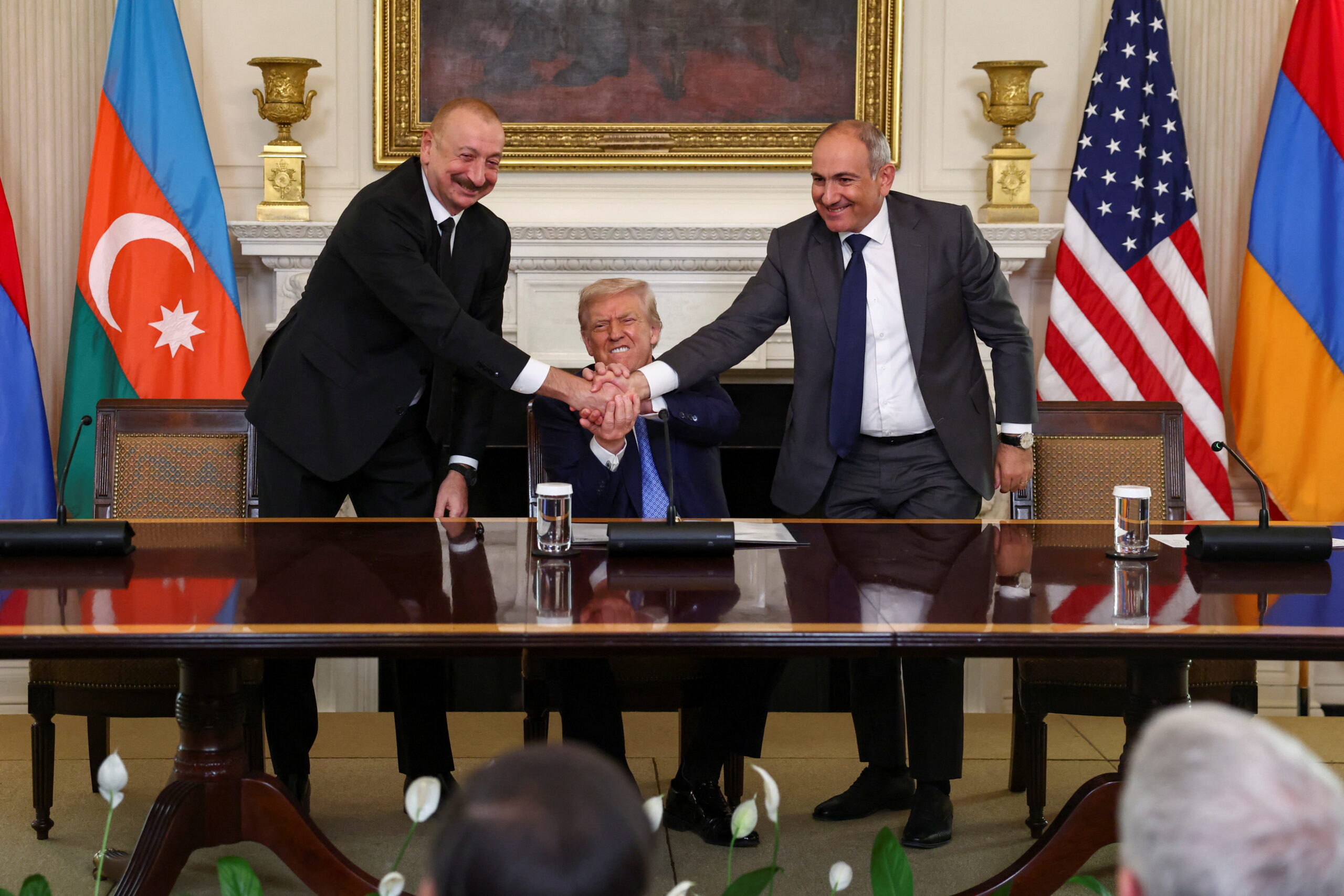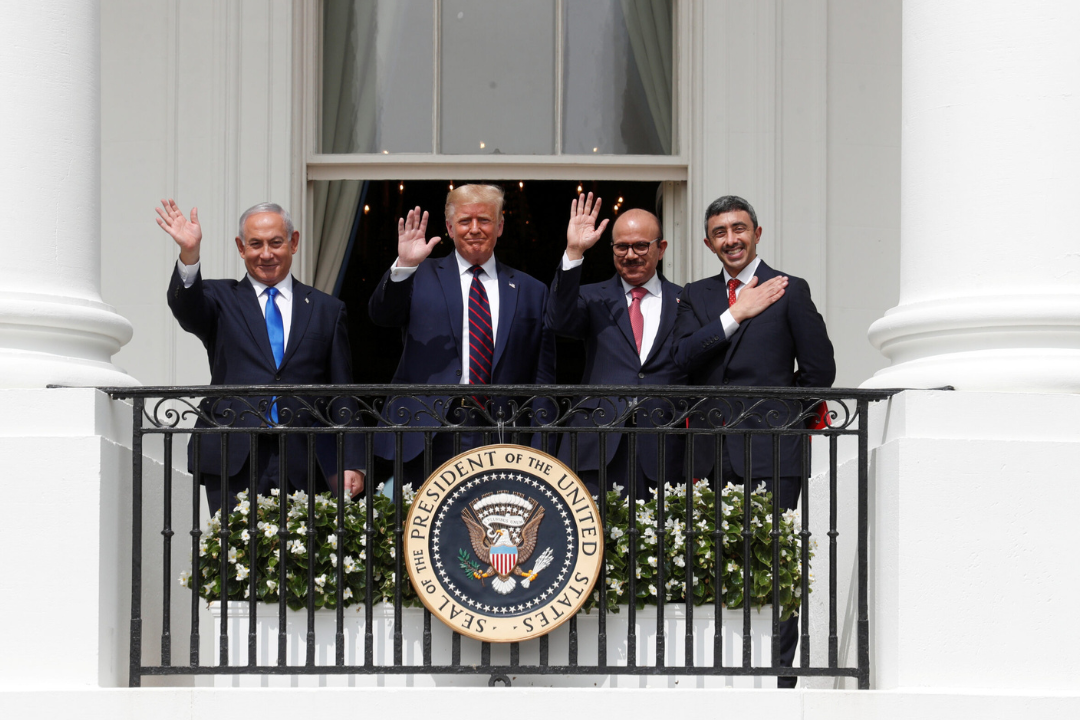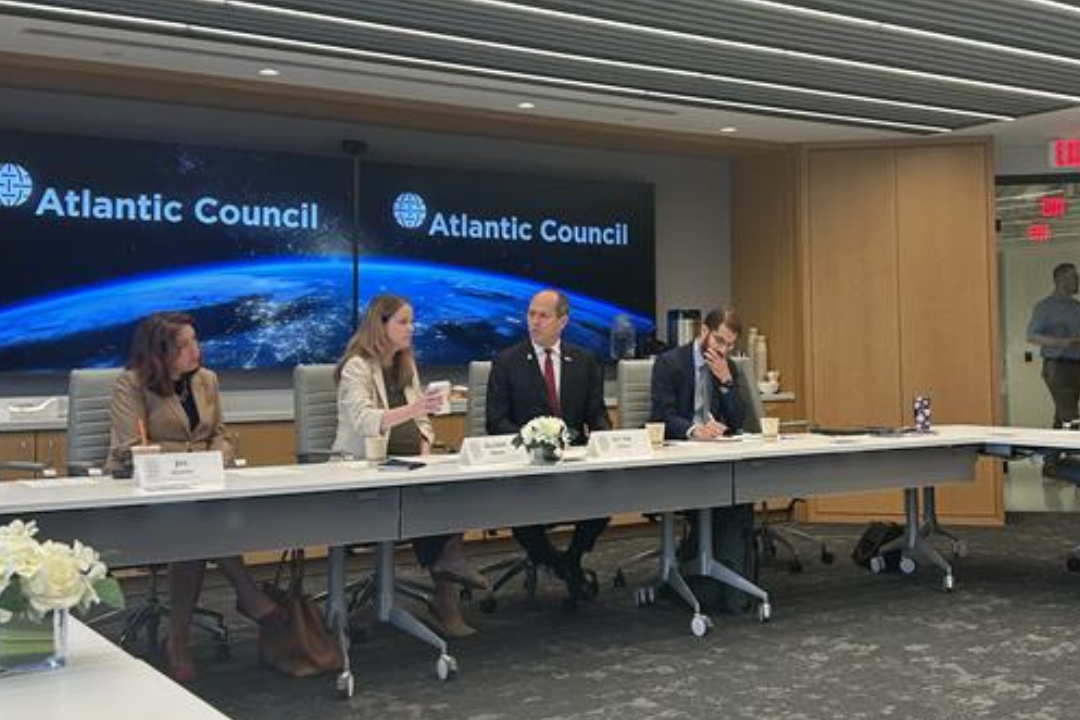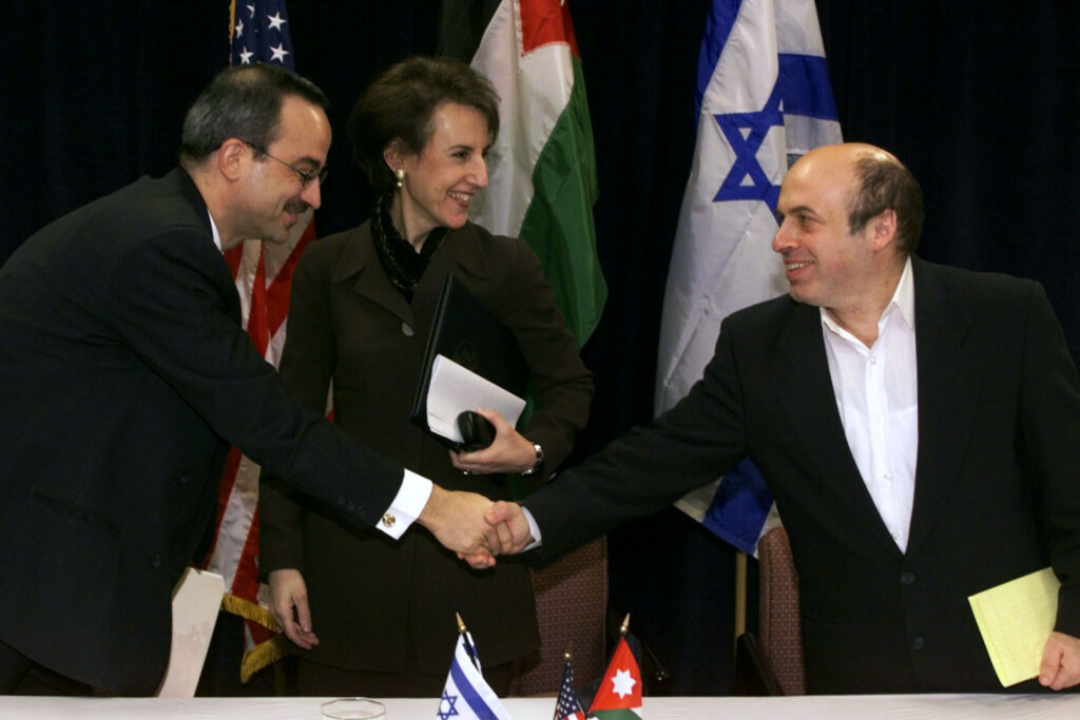It is conventional wisdom that the second Donald Trump administration will seek to finalize a defense treaty with Saudi Arabia as part of a broader deal to normalize relations between Saudi Arabia and Israel. Achieving such a deal, whose general parameters have been promoted and developed under the Joe Biden administration, would accomplish at least three significant objectives: it would firmly orient Saudi Arabia toward the West—and, ideally for the United States, away from China—under a security umbrella that would support Saudi regional leadership; it would pave the way for a regional defense alliance that includes Israel and moderate Arab states to maintain stability in the face of a bellicose and radical Iran; and it would facilitate Israel’s economic integration in the region.
However, the Middle East of 2024 is not the one that the first Trump administration left behind, as demonstrated by the dramatic ouster of Syrian dictator Bashar al-Assad earlier this week. As war grips Israel, Gaza, and, until recently, Lebanon following Hamas’s heinous terror attack on October 7, 2023, Riyadh has responded to domestic pressure and sentiments in the broader Muslim world by returning to the Arab Peace Initiative’s stated price that normalization with Israel includes the establishment of a Palestinian state. Such a demand appears difficult to reconcile with the current Israeli government’s positions, especially as 101 hostages—including seven Americans—languish in Gaza. In short, absent a meaningful political shift in Saudi Arabia or Israel, the US-brokered Saudi-Israeli “mega-deal” faces hurdles in the immediate future.
Given the current reality, policymakers seeking to advance Saudi-Israeli ties in the near term would be wise to focus on incentivizing private-sector cooperation alongside traditional diplomacy. With the right policies in place, the US private sector can play a critical role in advancing US-Saudi-Israeli economic relations, creating a reality that will make normalization more achievable, attractive, and palpable to both Saudi and Israeli leadership in the coming years.
To understand how the United States can serve as a catalyst for enhanced Saudi-Israeli economic integration, it is crucial to appreciate Saudi economic and geopolitical interests. For Saudi Crown Prince and Prime Minister Mohammed bin Salman (MBS), modernizing the Saudi economy and realizing his ambitious Vision 2030 are priorities on par with ensuring Saudi Arabia’s security. To diversify the Saudi economy and reduce dependence on oil, MBS has shifted Saudi’s centralized economy away from investments overseas, focused on job creation, increased human capital, and secured foreign direct investment and cutting-edge technologies from the United States, Europe, China, and other advanced economies.
To that end, MBS has significantly reformed intellectual property (IP) protections, corporate governance, regulatory frameworks, and investment protocols to introduce greater transparency and predictability into the Saudi economy and attract international investors. For example, Saudi Arabia recently revised its corporate code, transitioning from a traditional Sharia-based legal system to one that more closely resembles international legal standards. This legal transformation includes a law requiring companies to locate their regional headquarters within Saudi Arabia in order to be eligible for Saudi government contracts. (According to Saudi Investment Minister Khalid al-Falih, more than 550 firms, including Citibank and Morgan Stanley, have established regional headquarters in Saudi.)
All of these developments, combined with its projected gross domestic product (GDP) growth of 4.9 percent in 2025, have positioned Saudi Arabia as one of the most attractive target markets for US companies and investors across multiple sectors to expand their Middle East reach. The challenge for the incoming Trump administration will be translating these opportunities into geopolitical achievements, including enhancing the Saudi-Israeli relationship. It can do so by positioning the United States as a vital conduit for furthering the Saudi-Israeli private-sector partnership.
Prior to October 7, Saudi-Israeli commercial activity and interest had ticked upward as normalization appeared ever more imminent, highlighted by MBS’ appearance on Fox News in September 2023. Since the Israel-Hamas war, however, direct private-sector collaboration between Saudi Arabia and Israel has slowed, with a rough indicator being the lower-profile presence of Israeli businesspeople at the recent Future Investment Initiative Summit in Riyadh, the Middle East’s leading annual business conference.
US involvement can help push forward the Saudi-Israeli economic collaboration in at least three ways. First, the United States can build upon existing US-Israeli economic collaboration to incentivize US companies to integrate Israeli technology within Saudi Arabia. Specifically, leading US and Israeli companies that already collaborate in sectors such as cyber, agricultural technology, and renewable energy are well-aligned with Saudi’s Vision 2030 goals and Saudi Arabia’s national economic interests. For instance, the Binational Industrial Research and Development (BIRD) Foundation, a US-Israeli initiative that funds technologies developed by US and Israeli companies, or the US-Israel Binational Agricultural Research and Development (BARD) Fund, could provide additional grants or reduce repayment requirements for US participants who deploy the technologies in Saudi Arabia or across the Gulf Cooperation Council (GCC). These incentives would entice US companies to ensure that Israeli technology and the Saudi economy are intertwined, while demonstrating to each country the benefits of an enhanced relationship. Given the strong alignment between Israel’s economic strength and the needs of Vision 2030, this approach could help accelerate the success of ambitious projects in Saudi Arabia.
Additionally, the United States can facilitate the introduction of Israeli technologies and human capital into Saudi Arabia via the more than two hundred US multinational corporations that currently have a research-and-development (R&D) presence or subsidiaries in Israel. These companies can leverage their expertise and established teams on the ground in Israel to contribute to the economic growth of the GCC and align with Saudi national economic priorities. By instituting policies that induce collaboration, Washington can harness the innovative capabilities and talent pool of these Israeli companies to support their integration into the GCC.
Second, the United States can help coordinate with regional parties to overcome existing infrastructure challenges and advance regional trade. The United States can facilitate regional infrastructure projects, such as the India-Middle East-Europe Corridor (IMEEC) initiative announced by the Biden administration, which would advance the ability of Saudi Arabia and the GCC to export goods to Israel, the Mediterranean basin, and Europe via Jordan. Simultaneously, the United States should encourage Israel to increase its import capacity at border crossings with Egypt and Jordan, as they would be stretched to handle the full volume of goods that would become available for trade if regional opening occurs. By simultaneously advancing these policies, the United States will incentivize Saudi Arabia and the GCC to take advantage of export opportunities to the Mediterranean and access to Israel’s small but consumer-heavy market.
Finally, by leveraging its convening power, Washington can assemble the economic building blocks to support a future deal, while evading the political barriers preventing GCC business leaders from non-Abraham Accords countries from openly meeting with their Israeli counterparts. For instance, the incoming administration can leverage existing cybersecurity, defense, energy, and water conferences and summits in Washington and Silicon Valley—which leading GCC and Israeli figures already attend regularly—to convene sideline meetings with business leaders from Israel and the region. Even if not the express purpose, the clear subtext and agenda should focus on areas of actionable collaboration that the United States can midwife. Such off-the-record convenings will allow GCC and Israeli business counterparts to learn about one another, exchange ideas, and lay the groundwork for what partnering across the region will look like.
The United States faces structural and geopolitical barriers to advancing private-sector relations among itself, Israel, and Saudi Arabia. Riyadh’s overtures to China and Iran highlight its hedging strategy against a polarized US political system that has yielded unpredictable economic and foreign policy. Additionally, the advanced technologies best suited to support Vision 2030 are unlikely to be shared freely due to US concerns about their potential acquisition by its global rivals. Moreover, given the relative novelty of reforms in Saudi Arabia, certain Saudi markets and corporate jurisprudence remain untested and unpredictable. Finally, the ongoing Israel-Hamas war, coupled with some Israeli government coalition members’ rhetorical flirtation with West Bank annexation, might delay Saudi Arabia’s willingness to explore a regional deal.
While these risks remain, it is for these precise reasons that Washington should pursue a business-first approach while signaling its commitment to Saudi-Israeli normalization. By deepening Israel and Saudi Arabia’s economic integration across a wide variety of sectors, the United States will increase the price of deviating from peaceful relations. That is to say if either the Israeli or Saudi government pursues policies that undercut the possibility of normalization, they will pay an economic cost as well as a diplomatic one. In addition to prioritizing the release of the hostages and ending the war in Gaza, the incoming administration would be wise to build upon the first Trump administration’s “Peace to Prosperity” roadmap to underscore this point, encouraging the parties to include a Palestinian private-sector component in joint endeavors so that regional prosperity is shared by all. In any case, the incoming administration should indicate, in no uncertain terms, that the United States remains committed to pursuing Saudi-Israeli normalization in parallel to signaling to US businesses that Washington intends to expand its economic relationship with Saudi Arabia.
While both the Trump and the Biden administrations deserve praise for vigorously pursuing long-term regional stabilization based on peace agreements between GCC countries and Israel, a formal change in the status of the Saudi-Israeli relationship remains elusive. By leaning on the robust US private sector, the new administration can enhance Saudi and Israeli prosperity and, ultimately, increase the odds of regional stability.
Mark Donig is a Millennium fellow at the Atlantic Council, an attorney, and a senior adviser at Blue Laurel Advisors, which advises public-and private-sector actors on advancing business opportunities in the GCC.
Tally Zingher is the founding director of Blue Laurel Advisors.







